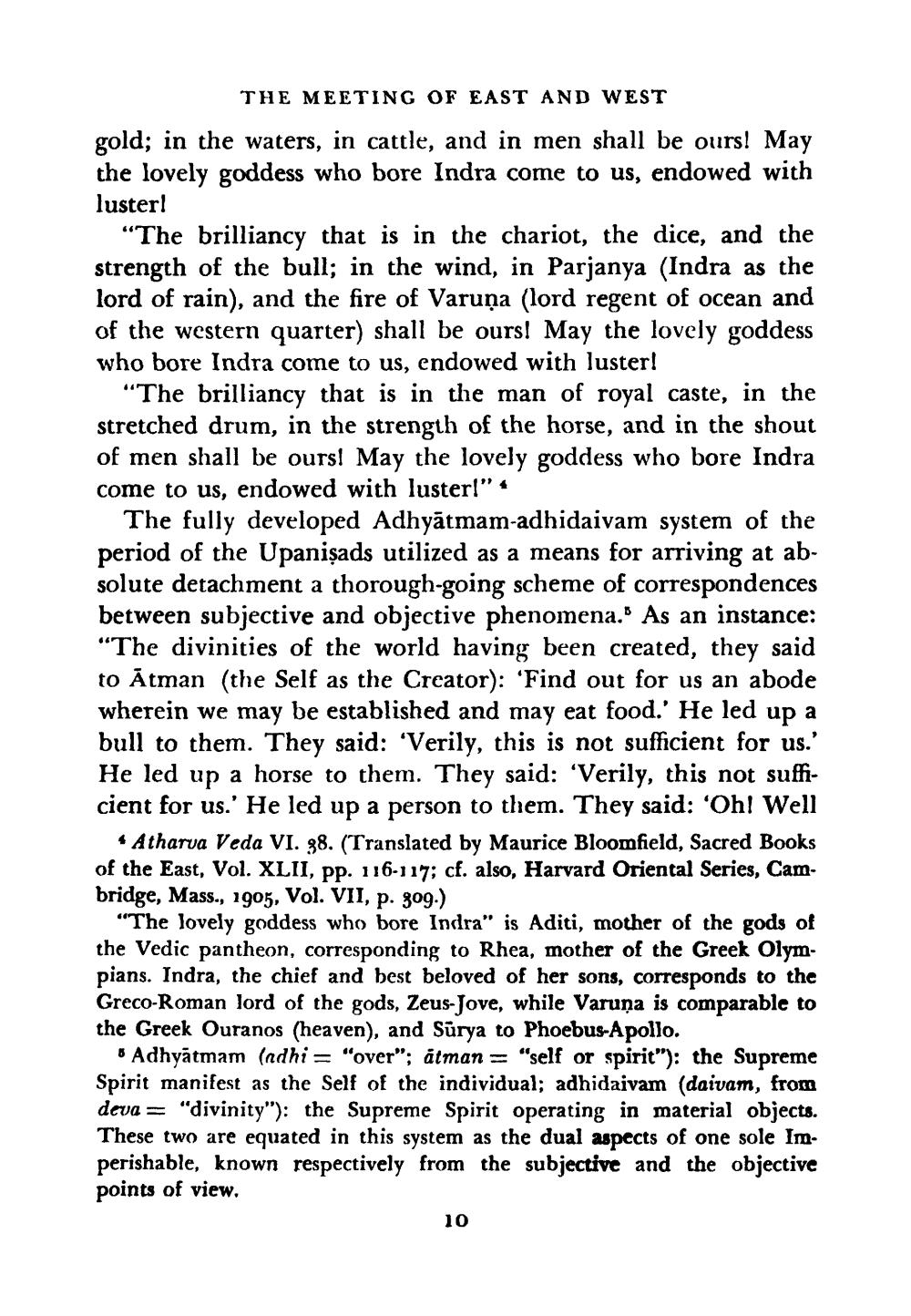________________
THE MEETING OF EAST AND WEST gold; in the waters, in cattle, and in men shall be ours! May the lovely goddess who bore Indra come to us, endowed with luster!
"The brilliancy that is in the chariot, the dice, and the strength of the bull; in the wind, in Parjanya (Indra as the lord of rain), and the fire of Varuņa (lord regent of ocean and of the western quarter) shall be ours! May the lovely goddess who bore Indra come to us, endowed with luster!
"The brilliancy that is in the man of royal caste, in the stretched drum, in the strength of the horse, and in the shout of men shall be ours! May the lovely goddess who bore Indra come to us, endowed with luster!".
The fully developed Adhyātmam-adhidaivam system of the period of the Upanişads utilized as a means for arriving at absolute detachment a thorough-going scheme of correspondences between subjective and objective phenomena. As an instance: “The divinities of the world having been created, they said to Ātman (the Self as the Creator): ‘Find out for us an abode wherein we may be established and may eat food.' He led up a bull to them. They said: 'Verily, this is not sufficient for us.' He led up a horse to them. They said: “Verily, this not sufficient for us.' He led up a person to them. They said: 'Oh! Well
* Atharva Veda VI. 38. (Translated by Maurice Bloomfield, Sacred Books of the East, Vol. XLII, pp. 116-117; cf. also, Harvard Oriental Series, Cambridge, Mass., 1905, Vol. VII, p. 309.)
"The lovely goddess who bore Indra" is Aditi, mother of the gods of the Vedic pantheon, corresponding to Rhea, mother of the Greek Olympians. Indra, the chief and best beloved of her sons, corresponds to the Greco-Roman lord of the gods, Zeus-Jove, while Varuņa is comparable to the Greek Ouranos (heaven), and Surya to Phoebus-Apollo.
• Adhyātmam (ndhi = "over"; åtman = "self or spirit"): the Supreme Spirit manifest as the Self of the individual; adhidaivam (daivam, from deva = "divinity"): the Supreme Spirit operating in material objects. These two are equated in this system as the dual aspects of one sole Imperishable, known respectively from the subjective and the objective points of view.
10




